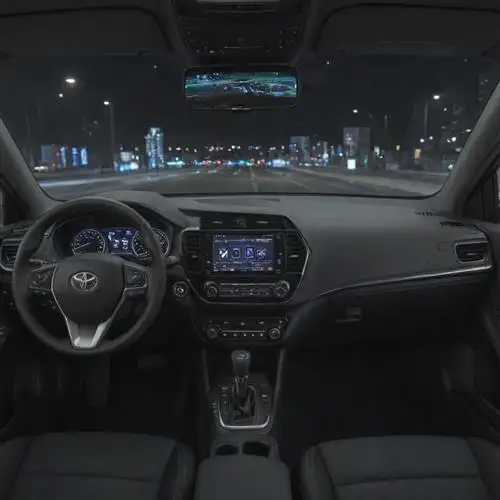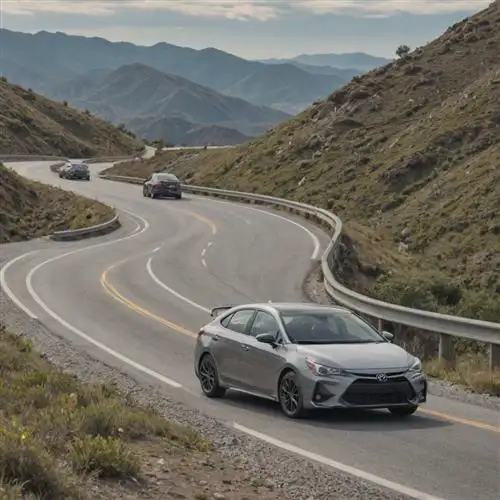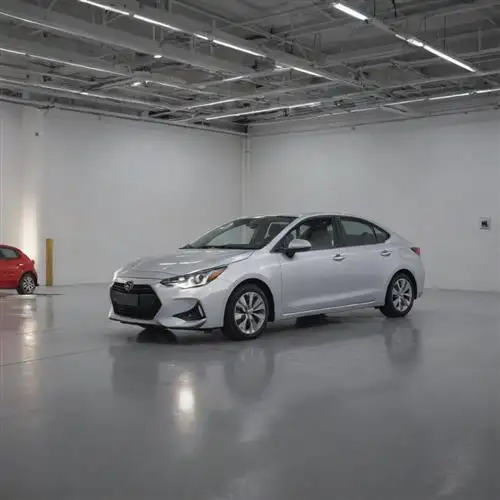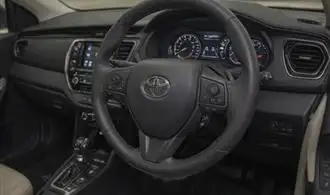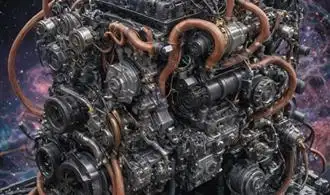
Fuel Efficiency Showdown
The Toyota Corolla and Hyundai Accent are two of the most popular compact cars on the market, each offering a unique combination of features and performance. When it comes to fuel efficiency, these two models go head-to-head, with both boasting impressive numbers. However, a closer look reveals some surprising differences that set them apart.
The Toyota Corolla's fuel efficiency is undoubtedly one of its standout features. Equipped with a 1.8-liter four-cylinder engine, the Corolla delivers an EPA-estimated 31 mpg in the city and 40 mpg on the highway, making it a practical and economical choice for daily commutes and road trips alike. This efficiency is achieved through a combination of advanced engine technology, aerodynamic design, and optimized gear ratios.
In contrast, the Hyundai Accent, with its 1.6-liter four-cylinder engine, offers a slightly lower fuel economy, with an EPA-estimated 29 mpg in the city and 38 mpg on the highway. While the difference may seem minor, it can add up over time, especially for drivers who rack up significant mileage.
One of the key factors contributing to the Corolla's superior fuel efficiency is its continuously variable transmission (CVT). This advanced transmission is designed to seamlessly adjust the gear ratios, allowing the engine to operate at its most efficient point, resulting in a smooth and responsive driving experience while maximizing fuel savings.
The Accent, on the other hand, is available with either a six-speed manual or a six-speed automatic transmission. While these transmissions are reliable and provide a satisfactory driving experience, they may not be as adept at maximizing fuel efficiency as the Corolla's CVT.
Another factor to consider is the Corolla's aerodynamic design. Toyota has carefully engineered the Corolla's shape to minimize wind resistance, which contributes to its impressive fuel efficiency. Features like the sleek roofline and optimized wheel well designs help the Corolla slice through the air more efficiently, reducing the engine's workload and improving overall fuel economy.
In contrast, the Accent's design, while still efficient, may not be as meticulously optimized for aerodynamics as the Corolla, which could result in slightly higher fuel consumption at higher speeds.
Cargo Space Clash
When it comes to cargo space, the Toyota Corolla and Hyundai Accent offer quite different experiences. The Corolla, known for its spacious interior, provides a generous 13.1 cubic feet of trunk volume, making it a practical choice for those who need to haul larger items or accommodate a growing family's needs. In contrast, the Accent's trunk space measures a more modest 11.2 cubic feet, which may be sufficient for daily commuting and light errands, but could fall short for more extensive cargo requirements.
One key advantage of the Corolla's cargo capacity is its versatility. The 60/40 split-folding rear seats allow for flexible configurations, enabling you to maximize available space. Whether you need to transport bulky items, sports equipment, or even accommodate a furry family member, the Corolla's adaptable cargo area can rise to the occasion. The The Toyota Corolla Review You Can't Miss delves deeper into the Corolla's impressive design and functionality.
In contrast, the Accent's more limited trunk space may pose a challenge for those with larger cargo demands. While it can still handle everyday luggage and grocery bags, the Accent may struggle to accommodate larger or oddly shaped items. This is an important consideration for those who frequently need to transport larger items or need the flexibility to adapt their cargo space to their needs.
It's worth noting that the Corolla's cargo capacity isn't just about the numbers – it's also about the thoughtful design. The trunk opening is wide and accessible, making it easy to load and unload items. The Corolla's trunk also features a flat floor, which can be particularly useful when transporting delicate items or sliding in larger objects.
Tech and Infotainment Showdown
The Toyota Corolla and Hyundai Accent are two of the most popular compact cars on the market, offering a range of features and capabilities to cater to different needs and budgets. When it comes to tech and infotainment, these two vehicles showcase a number of distinct differences that can sway a buyer's decision.
The Toyota Corolla boasts a 7-inch touchscreen display as standard, with the option to upgrade to an 8-inch unit on higher trims. This infotainment system runs on Toyota's latest Entune 3.0 software, offering a user-friendly interface, seamless smartphone integration via Apple CarPlay and Android Auto, and a range of connected services. The Corolla also comes equipped with a standard six-speaker audio system, with the option to upgrade to a premium JBL sound system.
In contrast, the Hyundai Accent features a slightly smaller 5-inch touchscreen display as standard, with the option to upgrade to a 7-inch unit. The Accent's infotainment system runs on Hyundai's proprietary software, which, while still intuitive, may not offer the same level of integration and connectivity as the Toyota Entune system. The Accent also comes standard with a four-speaker audio system, with the option to upgrade to a six-speaker configuration.
One area where the Hyundai Accent shines is its available wireless charging capability, a feature that is not offered on the Toyota Corolla. This can be a convenient option for those who rely on their smartphones for navigation, music, and other services while on the go.
In terms of driver assistance and safety technology, the Toyota Corolla offers a more comprehensive suite of features as standard, including the Toyota Safety Sense suite of advanced driver-assist systems. These include automatic emergency braking, lane departure warning, and adaptive cruise control. The Hyundai Accent does offer some driver-assist features, but they are typically reserved for higher trim levels or available as optional extras.
Driving Dynamics Duel
When it comes to driving dynamics, the Toyota Corolla and Hyundai Accent offer vastly different experiences. The Corolla's well-tuned suspension and precise steering provide a refined, comfortable ride, ideal for daily commuting and long-distance travels. Its responsive handling and balanced chassis make navigating winding roads a pleasure. In contrast, the Accent prioritizes a more budget-oriented approach, with a suspension tuned for a smooth, if somewhat disconnected, ride quality. While the Accent's steering is light and easy to maneuver in tight spaces, it lacks the level of feedback and precision found in the Corolla.
Fuel efficiency is another key consideration. The Corolla's efficient, well-engineered powertrains deliver impressive fuel economy, with some models capable of achieving up to 35 mpg in combined city/highway driving. The Accent, while not as fuel-sipping as the Corolla, still manages to deliver respectable numbers, making it a budget-friendly choice for those seeking a balance between performance and efficiency.
When it comes to acceleration, the Corolla's available engine options, including a peppy 2.0-liter four-cylinder, provide ample power for merging, passing, and navigating city traffic with ease. The Accent, on the other hand, relies on a 1.6-liter four-cylinder engine that, while competent, lacks the outright punch of the Corolla's powertrains. This difference in acceleration becomes particularly noticeable when carrying a full load of passengers or cargo.
One area where the Accent shines is its maneuverability. With its smaller dimensions and tighter turning radius, the Accent is easier to park and maneuver in tight urban environments. The Corolla, while still nimble, has a slightly larger footprint that may pose challenges in some crowded city streets or compact parking spaces.
Safety Features Face-off
When it comes to safety, the Toyota Corolla and Hyundai Accent each bring impressive features to the table. The Corolla boasts a comprehensive suite of active safety technologies, including a pre-collision system with pedestrian detection, lane departure alert with steering assist, and automatic high beams. These systems work together to monitor the road, alert the driver to potential hazards, and even intervene to help avoid or mitigate collisions. The Accent, while not quite as feature-rich as the Corolla, still offers a solid array of safety technologies, such as forward collision-avoidance assist, lane keep assist, and a rearview camera with dynamic parking guidelines.
In crash testing, both vehicles have earned top safety ratings from the Insurance Institute for Highway Safety (IIHS) and the National Highway Traffic Safety Administration (NHTSA). The Corolla, in particular, has consistently been recognized as a safety leader in its class, earning the IIHS Top Safety Pick+ award, the organization's highest honor. This distinction highlights the Corolla's exceptional performance in a variety of crash test scenarios, as well as the effectiveness of its active safety features.
When it comes to passive safety, the Corolla and Accent both feature a strong, reinforced body structure designed to protect occupants in the event of a collision. Both vehicles also come equipped with a full suite of airbags, including front, side, and curtain airbags, to provide comprehensive protection for all passengers. However, it's worth noting that the Corolla's body structure and safety cell design are often praised for their exceptional rigidity and energy-absorbing capabilities, which can be crucial in more severe crash scenarios.
Styling and Design Showdown
When it comes to the visual appeal of the Toyota Corolla and the Hyundai Accent, the two compact cars take distinctly different approaches. The Corolla's design is marked by a sense of refinement and sophistication, with clean lines, a sleek silhouette, and a front fascia that exudes a premium feel. The Accent, on the other hand, boasts a more youthful and dynamic look, with sportier styling cues and a bolder, more expressive front end.
One key difference lies in the headlight design. The Corolla features a set of sleek, LED-infused headlights that seamlessly blend into the overall front-end styling, creating a cohesive and visually appealing look. The Accent, meanwhile, opts for a more angular and aggressive headlight design, with sharper edges and a more pronounced visual impact.
Moving to the side profile, the Corolla's design is characterized by a subtle but elegant character line that runs the length of the car, adding a touch of sophistication. The Accent, in contrast, features a more sculpted and dynamic side profile, with distinct creases and contours that give the car a sense of motion even when standing still.
At the rear, the Corolla's design language continues, with a clean and uncluttered look that emphasizes the car's overall sense of refinement. The Accent, on the other hand, features a more distinctive rear-end design, with a sporty integrated spoiler and a set of taillights that extend further towards the edges of the car, creating a more visually striking appearance.
In terms of interior design, the Corolla takes a more premium approach, with a well-appointed and thoughtfully designed cabin that features high-quality materials and a clean, uncluttered layout. The Accent, while still offering a comfortable and functional interior, has a more youthful and playful aesthetic, with a greater emphasis on bold colors and distinctive design elements.
Reliability and Longevity Comparison
The Toyota Corolla and Hyundai Accent are both compact cars known for their affordability and practicality. However, when it comes to reliability and longevity, the Corolla has a clear advantage. Toyota's reputation for producing durable, long-lasting vehicles is well-established, and the Corolla is a prime example of this. Studies have shown that the Corolla consistently ranks among the top vehicles for reliability and longevity, with many models easily surpassing the 200,000-mile mark with proper maintenance. In contrast, the Hyundai Accent, while a solid and dependable car, does not have the same track record of exceptionally long-lasting performance.
One of the key factors that contributes to the Corolla's reliability is its robust and well-engineered engine and transmission. Toyota's engines are renowned for their durability and ability to withstand high mileage without major issues. The Corolla's available engines, ranging from the efficient 1.8-liter four-cylinder to the more powerful 2.0-liter unit, are designed to provide years of reliable service. Additionally, the Corolla's transmissions, whether the smooth-shifting manual or the seamless automatic, are built to last, ensuring consistent and trouble-free performance.
Another aspect that sets the Corolla apart is its reputation for exceptional build quality. Toyota is known for its meticulous attention to detail and commitment to manufacturing vehicles that can withstand the rigors of daily driving. The Corolla's body structure, suspension components, and interior materials are all designed to withstand the test of time, making it a durable and long-lasting choice for drivers who plan to keep their car for many years. The The Ultimate Toyota Corolla Safety Guide further highlights the Corolla's safety features, which contribute to its overall reliability and longevity.
When it comes to maintenance and repair costs, the Corolla also has an advantage over the Accent. Toyota's reputation for reliable and low-cost parts, as well as its extensive network of authorized service centers, means that Corolla owners can typically expect lower maintenance and repair expenses over the life of the vehicle. This can translate to significant savings for drivers who plan to keep their Corolla for the long haul.
Value and Affordability Showdown
When it comes to value and affordability, the Toyota Corolla and Hyundai Accent are two compact car models that often find themselves in direct competition. While the Corolla is known for its reputation for reliability and long-term value, the Accent offers an enticing proposition with its budget-friendly price tag. To truly understand which vehicle provides the better overall value, let's dive deeper into the key factors that differentiate these two compact cars.
Firstly, the starting price point is a crucial consideration. The Hyundai Accent boasts a lower MSRP, making it an attractive option for buyers on a tight budget. However, the Corolla's higher price tag is often justified by its superior build quality, more robust engineering, and the brand's renowned reputation for reliability. Over the long run, the Corolla's durability and low maintenance costs can offset the initial price difference, providing greater value for the investment.
Fuel efficiency is another area where the Toyota Corolla shines. With its advanced engine technology and aerodynamic design, the Corolla consistently delivers impressive fuel economy ratings, often surpassing the Hyundai Accent. This translates to lower overall operating costs for the Corolla owner, further enhancing the value proposition.
When it comes to features and amenities, the Corolla and Accent aim to cater to different segments of the market. The Accent, being the more budget-oriented model, may offer a more basic set of features, while the Corolla typically provides a wider array of standard and available options, catering to the needs of buyers who prioritize a more well-equipped and feature-rich vehicle. This can be a significant factor for those who value the latest technologies and conveniences.
Finally, the resale value of the vehicles plays a crucial role in the overall value equation. The Toyota Corolla has a proven track record of maintaining its value over time, often commanding higher resale prices compared to the Hyundai Accent. This can be a significant advantage for Corolla owners who plan to sell or trade-in their vehicle in the future.



